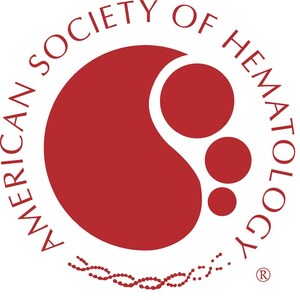
Gut Bacteria Predict Survival After Stem Cell Transplant, Study Shows
Research demonstrates association between diversity of gut bacteria and survival
WASHINGTON, June 17, 2014 /PRNewswire-USNewswire/ -- New research published online today in Blood, the Journal of the American Society of Hematology (ASH), suggests that the diversity of bacteria in the gastrointestinal tract of patients receiving stem cell transplants may be an important predictor of their post-transplant survival.
A healthy gastrointestinal tract contains a balanced community of microorganisms (known as microbiota), largely comprised of "friendly" bacteria that aid digestion and are important to immune system function. When this community of microbes is compromised, the microbiota may become less diverse, and the body becomes more susceptible to certain diseases.
Previous studies have shown that the intensive treatment given to individuals receiving a stem cell transplant from a healthy donor (known as an allogeneic stem cell transplant or SCT) can destroy a significant portion of the recipients' gut microbiota and reduce its overall diversity. Disturbances of the gut microbiota have been shown to be correlated with post-transplant complications such as bloodstream infections and graft-versus-host disease.
"While the link between gut microbiota and complications in allogeneic SCT has been previously established, until this point it has remained unclear whether the gut bacteria of transplant recipients could predict their survival," said senior study author Ying Taur, MD, MPH, of the Lucille Castori Center for Microbes, Inflammation, and Cancer at Memorial Sloan Kettering Cancer Center. "This study sought to further explore the potential connection between transplantation, gut bacteria, and overall survival."
To better understand the association between post-transplant microbiota and patient outcomes, Dr. Taur and a team of researchers collected fecal specimens from 80 patients undergoing allogeneic SCT and sequenced each sample's bacterial DNA. Specimens were collected within seven days of engraftment, the point at which transplanted blood-forming cells start to grow and make healthy cells in the recipient and the point at which researchers speculated that microbiota diversity would be greatest following pre-transplant conditioning.
Researchers compared patient outcomes based on diversity of microbiota in their specimens, grouping subjects into high, intermediate, and low microbiota diversity categories. At time of stem cell engraftment, 34 patients (42.5%) were observed to have low gut microbiota diversity, 20 (25%) of patients had intermediate diversity, and 26 (32.5%) patients had high diversity. The analysis continued for up to three years or until death or last follow-up.
Following their analyses, researchers found a strong connection between post-transplant gut microbiota diversity and outcomes, observing overall survival rates of 36 percent, 60 percent, and 67 percent among the low, intermediate, and high diversity groups, respectively. Furthermore, researchers observed that diversity was particularly associated with transplant-related outcomes, concluding that patients with low microbiota diversity were approximately five times more likely to die of transplant-related causes within the follow-up period than those with more diverse gut bacteria.
"These results further underscore the significance of the gut microbiota in allogeneic stem cell transplant. A major question is whether we can improve outcomes by preserving diversity within the gut microbiota," said Dr. Taur. "One possible strategy is to find ways to perform transplants in a manner that minimizes damage to the gut microbiota. Another approach would be to replenish the gut with beneficial microbes that are lost after this procedure is performed. We hope that this study will inspire additional research that will further examine the role and importance of the gut microbiota to stem cell transplant outcome."
Blood (www.bloodjournal.org), the most cited peer-reviewed publication in the field of hematology, is available weekly in print and online. Blood is the official journal of the American Society of Hematology (ASH) (www.hematology.org), the world's largest professional society concerned with the causes and treatment of blood disorders.
ASH's mission is to further the understanding, diagnosis, treatment, and prevention of disorders affecting blood, bone marrow, and the immunologic, hemostatic, and vascular systems by promoting research, clinical care, education, training, and advocacy in hematology.
blood® is a registered trademark of the American Society of Hematology.
SOURCE American Society of Hematology






Share this article